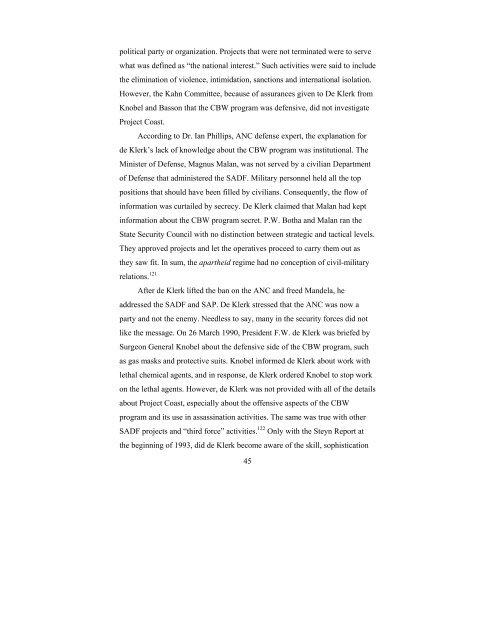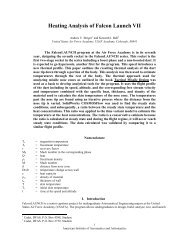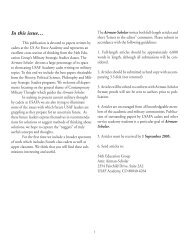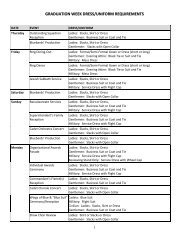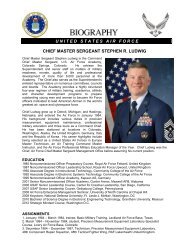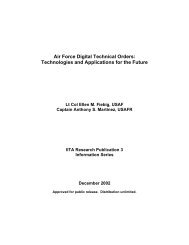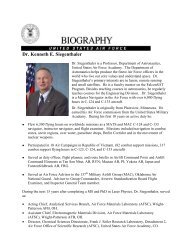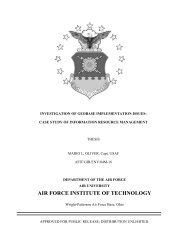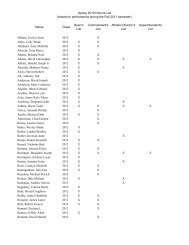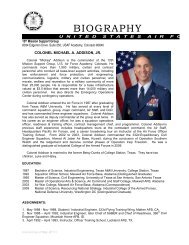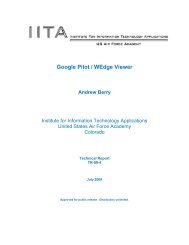the rollback of south africa's biological warfare program
the rollback of south africa's biological warfare program
the rollback of south africa's biological warfare program
Create successful ePaper yourself
Turn your PDF publications into a flip-book with our unique Google optimized e-Paper software.
political party or organization. Projects that were not terminated were to serve<br />
what was defined as “<strong>the</strong> national interest.” Such activities were said to include<br />
<strong>the</strong> elimination <strong>of</strong> violence, intimidation, sanctions and international isolation.<br />
However, <strong>the</strong> Kahn Committee, because <strong>of</strong> assurances given to De Klerk from<br />
Knobel and Basson that <strong>the</strong> CBW <strong>program</strong> was defensive, did not investigate<br />
Project Coast.<br />
According to Dr. Ian Phillips, ANC defense expert, <strong>the</strong> explanation for<br />
de Klerk’s lack <strong>of</strong> knowledge about <strong>the</strong> CBW <strong>program</strong> was institutional. The<br />
Minister <strong>of</strong> Defense, Magnus Malan, was not served by a civilian Department<br />
<strong>of</strong> Defense that administered <strong>the</strong> SADF. Military personnel held all <strong>the</strong> top<br />
positions that should have been filled by civilians. Consequently, <strong>the</strong> flow <strong>of</strong><br />
information was curtailed by secrecy. De Klerk claimed that Malan had kept<br />
information about <strong>the</strong> CBW <strong>program</strong> secret. P.W. Botha and Malan ran <strong>the</strong><br />
State Security Council with no distinction between strategic and tactical levels.<br />
They approved projects and let <strong>the</strong> operatives proceed to carry <strong>the</strong>m out as<br />
<strong>the</strong>y saw fit. In sum, <strong>the</strong> apar<strong>the</strong>id regime had no conception <strong>of</strong> civil-military<br />
relations. 121<br />
After de Klerk lifted <strong>the</strong> ban on <strong>the</strong> ANC and freed Mandela, he<br />
addressed <strong>the</strong> SADF and SAP. De Klerk stressed that <strong>the</strong> ANC was now a<br />
party and not <strong>the</strong> enemy. Needless to say, many in <strong>the</strong> security forces did not<br />
like <strong>the</strong> message. On 26 March 1990, President F.W. de Klerk was briefed by<br />
Surgeon General Knobel about <strong>the</strong> defensive side <strong>of</strong> <strong>the</strong> CBW <strong>program</strong>, such<br />
as gas masks and protective suits. Knobel informed de Klerk about work with<br />
lethal chemical agents, and in response, de Klerk ordered Knobel to stop work<br />
on <strong>the</strong> lethal agents. However, de Klerk was not provided with all <strong>of</strong> <strong>the</strong> details<br />
about Project Coast, especially about <strong>the</strong> <strong>of</strong>fensive aspects <strong>of</strong> <strong>the</strong> CBW<br />
<strong>program</strong> and its use in assassination activities. The same was true with o<strong>the</strong>r<br />
SADF projects and “third force” activities. 122 Only with <strong>the</strong> Steyn Report at<br />
<strong>the</strong> beginning <strong>of</strong> 1993, did de Klerk become aware <strong>of</strong> <strong>the</strong> skill, sophistication<br />
45


